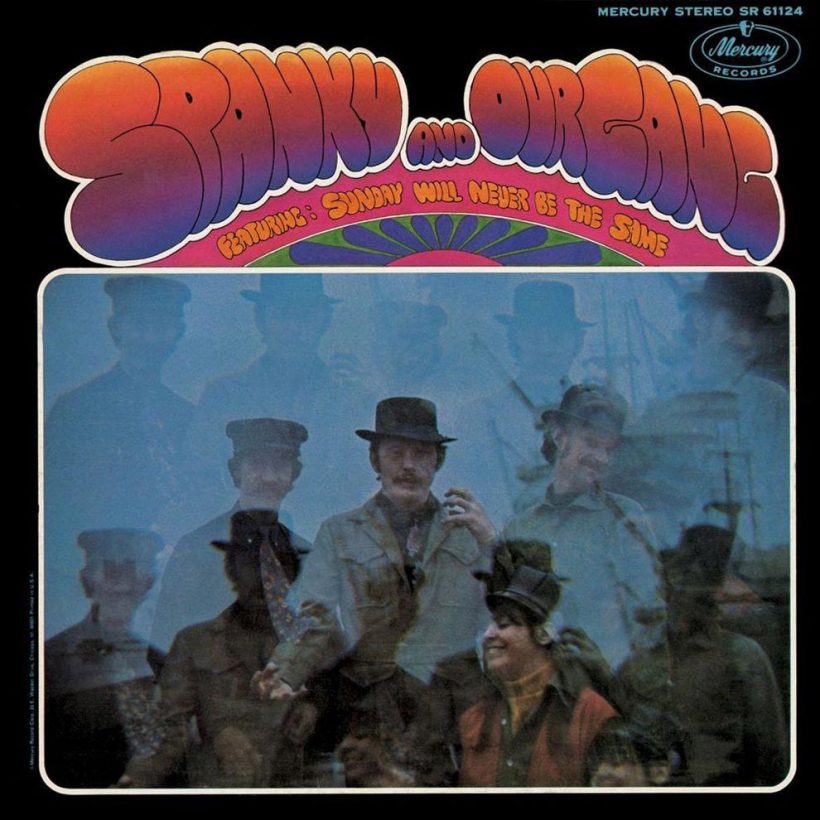‘Spanky And Our Gang’: Sunshine Pop At Its Best And Brightest
The group’s self-titled album represented the antithesis of 60s protest rock.

The Bloomington, Illinois, quintet Spanky And Our Gang took their name from Hal Roach’s 30s comedies Our Gang, known in latter-day times as Little Rascals. That escapist implication suited their music, which was commonly referred to as “sunshine pop”: a hybrid of close-control harmony singing with elements of nostalgic show tunes and a whiff of sweet bubblegum pop. Step forward Elaine “Spanky” McFarlane, Nigel Pickering, Paul “Oz” Bach, Malcolm Hale, and John “The Chief” Seiter.
In a way they represented the antithesis of 60s protest rock: at a time when it was de rigueur to chronicle the Western world’s troubles via plaintive angst, Spanky And Our Gang had more in common with The Mamas And The Papas or The Lemon Pipers. They weren’t trying to change the world through songs; they were on a mission to provide escapism and aural balm.
The group’s self-titled debut album, released through Mercury on August 1, 1967, contained what would become million-selling singles in “Sunday Will Never Be The Same” and the sublime “Lazy Day.” Terry Cashman and Gene Pistilli, seasoned backroom songwriters, penned the former. Originally a straightforward ballad, the Gang changed the song’s dynamic by adding a vocal “Ba-da-da-da-da” that cemented the hook for radio listeners and elevated the track into classic territory.
Unlike John Phillips’ Mamas And Papas, the Spanky crew didn’t write original material, but made a virtue out of revisiting such practiced lyricists as Meredith Wilson, whose Broadway piece “Ya Got Trouble (In River City)” was given a relentlessly cheery backbeat. Brill Building fellow Tony Powers (who composed tracks covered by everyone from The Banana Splits to KISS) was the brains behind “Lazy Day,” a nugget from the Screen Gems film production company that could easily have fallen into The Monkees’ clutches. To reiterate: we ain’t talking “Masters Of War” here; this is all about pure pop.
The bebop/cool jazz pianist and composer Bob Dorough provided the impetus for a slinky take on “5 Definitions Of Love.” Female folk singer Jo Mapes, who did write for The Monkees and The Association, had another perfect Spanky vehicle to hand in “Come And Open Your Eyes (Take A Look).” Disparate as it seemed, all of this hung together thanks to the production chops of Jerry Ross, mentor to Kenny Gamble and the man at the controls for Bobby Hebb’s ‘Sunny’ and Shocking Blue’s epic “Venus.” meaning that both his previous and his aftermath were impeccable credentials.
Perhaps the other standout track is an early cover of John Denver’s now evergreen “Leaving On A Jet Plane,” the easy-listening standard that Peter, Paul and Mary made their biggest hit, though its position at No.1 arrived in 1969. Quite why Spanky and co didn’t see fit to make it a single is anyone’s guess, but they missed a chance there since the four-way harmony would surely have made a huge impact.
No matter, the highly arranged efforts on this underrated album make it well worth rediscovering. Regardless of what lay in the undergrowth, this is music from a distant and more innocent time. A year later, they caught a touch of the psychedelic blues bug and followed up with Like To Get To Know You, but even then everything in their garage was well ordered. They were that type of group.













Daniel Martin
July 19, 2018 at 3:51 pm
Thanks for posting this piece. Spanky and Our Gang has always been somewhat fascinating to me and as of late, the availability of their albums on Spotify has only made their work more impressive. A really fine vocal ensemble. Their second album, is particularly interesting to me as it contains such rich combination of influences (Tin Pan Alley, Rock, Big Band, Country/Folk, Blues, Cabaret) all benefitting from a production that I imagine was top-notch for the time. To hear the album version of “Like to Get to Know You” as part of a 3 song suite is a good example of this. The coda for that song…still takes my breath away.